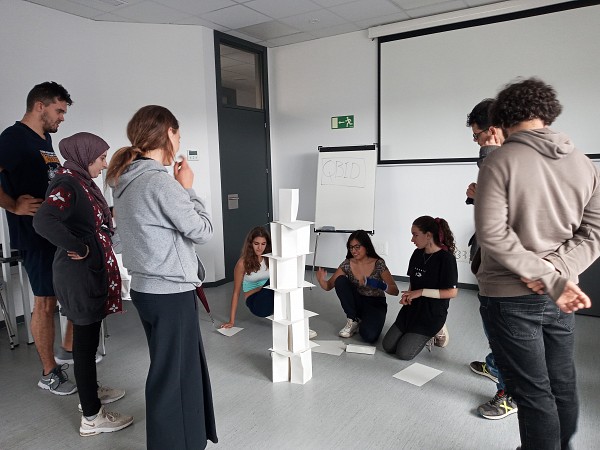Article of FRN Magazine nº5 of 2018
MOISÈS COSTA Doctor of the Adult Area of the Fundació Ramon Noguera Group
Living for more years involves the risk of certain diseases associated with aging (if diseases can be called) such as dementias. Obviously, this also affects people with intellectual disabilities who have in recent times increased their life expectancy and, therefore, the risk of suffering such disorders.
In general, it can be said that the prevalence of dementia among people with disabilities is more or less the same as between the general population. However, with regard to adults with Down syndrome, there is a higher risk of Alzheimer's disease, about 25% between 40 years and older, and 60% among people of 60 years or more. It affects both men and women alike and it seems that it may be due to excess production of a protein that depends on a gene of chromosome 21, tripled in these people. Alzheimer's disease appears 20 years earlier in people with Down syndrome.
The debut of these diseases is difficult to detect in people with intellectual disabilities. It is especially difficult to evaluate the loss of memory. Everything starts with small changes in the daily routine. Also in alterations of the conduct, either in the appearance of disorders that previously were not, or changes, more or less sudden, of the behavior, inexplicable for other reasons.
Medically assessing the initial phase of dementia in people with intellectual disabilities is complicated. We do not have tests to diagnose dementia; the diagnosis is made by exclusion of other possibilities. The standard tests used in the general population are not useful in people with intellectual disabilities. The careful observation of the caregivers is very important to detect small alterations of functionalism, and that these changes are significant and maintained more than 6 months. This should be combined with medical studies such as laboratory tests and others, but always bearing in mind that doing more is not better. These explorations are aimed at detecting possible reversible causes of cognitive impairment. Currently, in this hyper-technological and hyper-demanding society, in people with intellectual disabilities it is also easy to fall into the excess, overactivity and overdiagnosis.
Pharmacological treatment has also generated many expectations. In the general population, the results of anti-Alzheimer's drugs have been and are disappointing, to the point that the health authorities of certain countries, such as France, are considering withdrawing from public funding. The possible beneficial effects of these medications depend to a large extent on whether they are prescribed at the beginning of the disease, which I have already commented that it is not exactly easy to do in people with intellectual disabilities. There are also those who argue that these medications can help control the associated behavioral disorders or those caused as a result of dementia itself. The goal, often, is no longer slowing down the progression of dementia but decreasing or removing treatments (sometimes abusive) such as neuroleptics and / or others.
Finally, everything is reduced to the fact that people with intellectual disabilities diagnosed with dementia and those who do not receive adequate support and assistance to live with dignity. But we all know that this is very complicated because it depends on resources, of all kinds, that are destined for the attention of this group and therefore of sensible political decision making.
.................................................. ....
Article published in the Annual Magazine of the Ramon Noguera Foundation 2018. Read more articles: FRN MAGAZINE
If you want to support our projects, do it FRIENDS OF THE FOUNDATION



